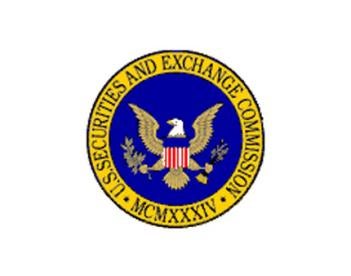Our post last week explained the background behind the growing concern regarding the potential home-court advantage the SEC may have in contested matters it litigates as in-house administrative proceedings rather than in federal district court. Since “in recent years an increasing percentage of enforcement actions have been filed as contested matters, as opposed to being fully settled at the outset,” and those figures are “expected to continue to grow,” as Chair Mary Jo White testified recently to Congress, the SEC’s choice of forum takes on increasing significance.
Against this backdrop, earlier this month, the SEC’s Enforcement Division issued a memorandum describing the factors the agency considers when deciding the proper forum in which to bring a contested action. The Commission began by saying it had no “rigid formula” for making this decision. Instead, it decides based on the facts and circumstances of each case and its enumerated factors may be weighed differently in different proceedings. The memo makes clear that, in some instances, just one factor could drive the decision.
So, after potentially undercutting the utility of its guidance, it identified that potentially relevant factors include, but of course cannot be limited to, the following:
-
The availability of the desired claims, legal theories, and forms of relief. Some claims (like failure to supervise) can only be brought in an administrative proceeding. Control person liability can only be asserted in federal district court. The specific claim to be asserted, therefore, impacts the choice of forum. Similarly, certain relief, particularly emergency relief, like temporary restraining orders, asset freezes and the like, are only possible through district court proceedings. On the other hand, officer and director bars are only possible via an administrative proceeding. While it is certainly possible (and often done in the past) to bring a district court action, followed by an administrative proceeding to obtain follow-on administrative relief, the SEC asserts that efficiency dictates, perhaps more than before, a single proceeding if possible.
-
The cost, resource, and time-effectiveness of litigation in each forum. The SEC points out that hearings in administrative actions take place more quickly than in federal court. Using the SEC’s “limited resources more effectively” therefore points toward the increased use of those proceedings. The Commission also pointed out that it is subject to more types of pre-trial discovery in federal court, like depositions. As a counterbalance, though, in administrative proceedings, it has an affirmative obligation to produce the non-privileged portions of its case file.
-
Fair, consistent, and effective resolution of securities law issues. Finally, the SEC asserts that its ALJs have extensive knowledge of the federal securities laws and securities industry; therefore, in what can only be considered a slap at Article III judges, in cases with “unsettled and complex legal issues,” it considers whether an administrative proceeding (followed by deferential appellate court review) would “facilitate development of the law.”
Beyond the factors the agency identified, its guidance highlighted several other things. First, the Commission’s “limited resources” seem to factor heavily into its decision-making process. The SEC says at least five times in its four-page memo that its “limited resources” are considered when considering the propriety of the forum. That this guidance comes on the heels of Chair White’s most recent trip to Capitol Hill seeking additional funds for the SEC’s budget may, or may not, be coincidental.
As clear as the agency’s emphasis on its “limited resources” is its repeated invocation of “efficiency” to justify its decisionmaking. What seems to be omitted entirely though from the SEC’s guidance is any consideration of the defendant’s due process rights in determining where to bring an action. Defendants’ repeated concerns about the lack of discovery in administrative proceedings, particularly depositions, the abbreviated time to prepare for hearing, and the relaxed evidentiary rules do not appear explicitly anywhere in the agency’s guidance.
While the SEC has argued that federal courts long ago concluded that administrative proceedings, such as the agency’s, can potentially satisfy due process, its guidance suggests that it continues to gloss over the Supreme Court’s admonition in Stanley v. Illinois, 405 U.S. 645, 656 (1972), which states that:
The Constitution recognizes higher values than speed and efficiency. Indeed, one might fairly say of . . . the Due Process Clause in particular, that [it was] designed to protect the fragile values of a vulnerable citizenry from the overbearing concern for efficiency and efficacy that may characterize praiseworthy government officials no less, and perhaps more, than mediocre ones.
As the SEC continues to decide where to bring its contested cases and cases raising unsettled questions of securities law, prudence (and the Constitution) suggests that due process considerations, rather than efficiency and scarce resources, weigh heavily in the SEC’s decision-making process.



 i
i


